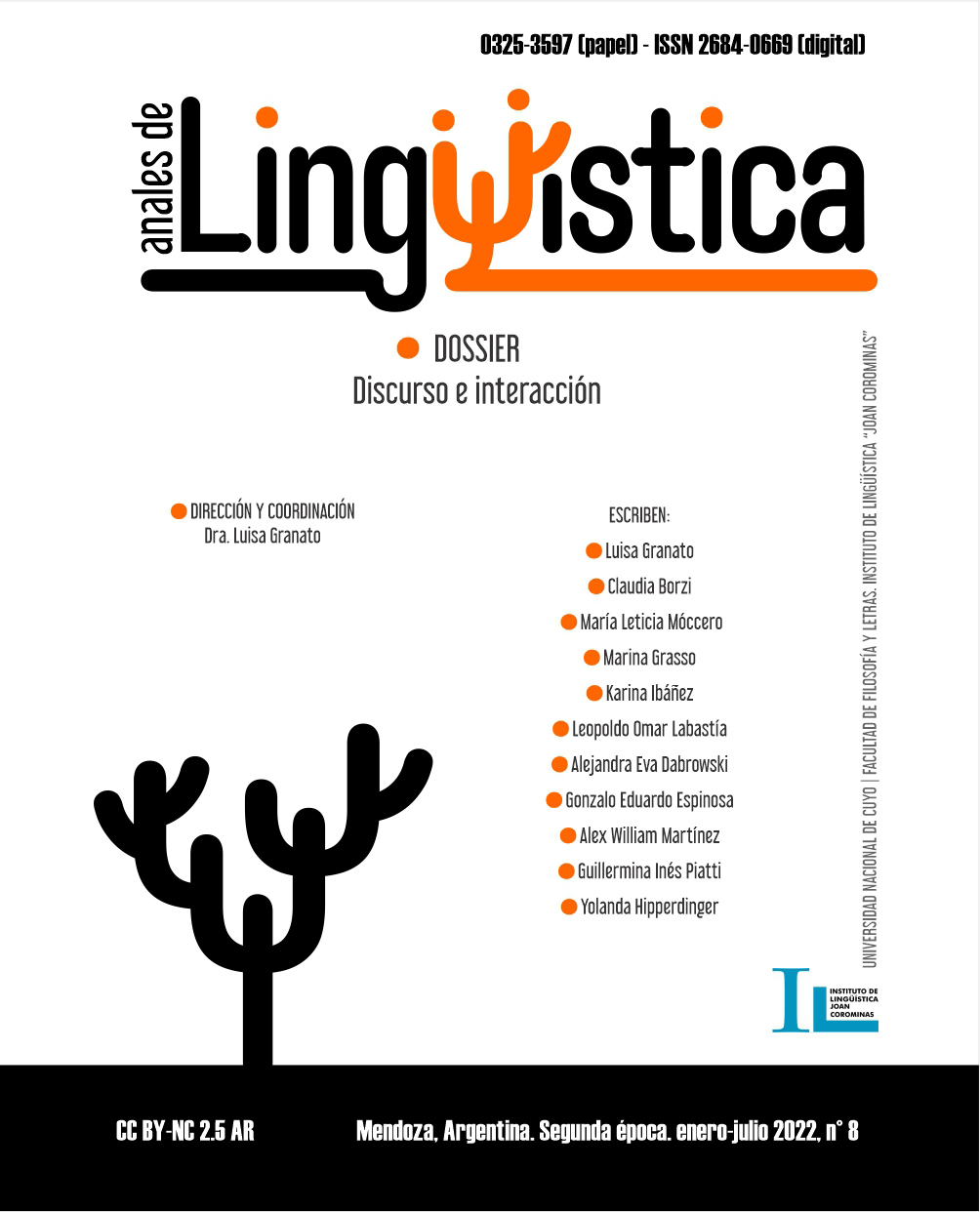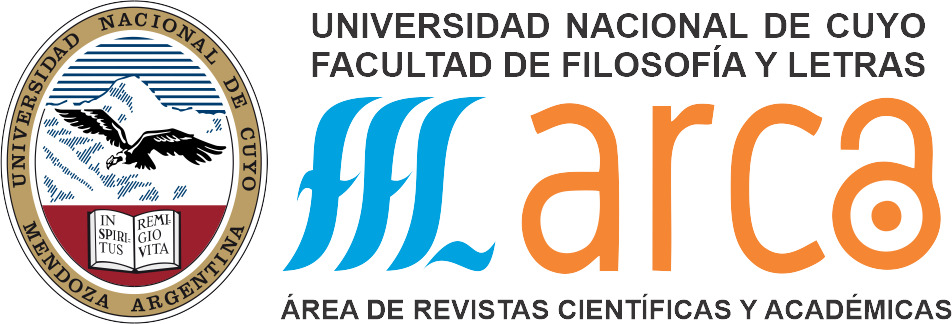To Know and not to Know: The Co-Construction of the Inquiry Project in Colloquial Conversation
Keywords:
discourse markers, functions, conversationAbstract
In this paper, some uses of certain epistemic modality expressions (the truth is, it is true that, I don’t know, what do I know) are described in relation to discursive functions that are carried out by speakers in order to achieve a “project of inquiry” (Stalnaker, 2002). In fact, speakers’ intentional exchange of information takes place in most conversations by discovering jointly how things are and contributing with true data to a shared body of information. According to González (2014) and López Serena and González Márquez (2018) the above-mentioned epistemic markers, among many others, evoke the speaker as a conceptualizer / modalizer of what he says and leave open the possibility of including the listener by guiding his interpetations. In this way, epistemic modality evidenced by these resources’ accounts for the speaker’s commitment or attitude towards information and his intention of sharing his interpretation with the listener. It seems important to contextualize the use of these expressions in order to establish more adequately functions and meanings conveyed by these means. Analysed conversations belong to ECAR’s corpus (Colloquial Spanish in Argentina).
References
Albelda Marco, M. (2018). Evidentials as a mark of genre: a study of four oral and written genres. Pragmatics&Society 9/3, 429-453.
Aijmer, K. (2009b). Pragmatics markers in spoken interlanguage. Nordic Journal of English Studies. 173-190.
Baumgarten, N. y House, J. (2010). I think and I don´t know in English as lingua franca and native English. Journal of Pragmatics. 42, 1184-1200.
Berg, Bruce (2001). Qualitative Methods for the Social Sciences. Boston: Allyn and Bacon.
Drew, P. (2018). Epistemics in social interaction. Discourse Studies. 20(1) 163-187
Fraser, B. y Malmaud-Makowski, M. (1996). English and Spanish contrastive markers. Language Sciences18: 863–881.
Frankfurt, H. (2005). On Bullshit. Princeton: Princeton University Press.
Fuentes Rodriguez, C. (2012). La verdad como estrategia de legitimación discursiva. Discurso & sociedad. 6 (1) 128-155.
González, M. (2014) Evidentiality, intersubjectivity and salience in Spanish and Catalan markers. Intercultural Pragmatics. 11(3) 409-434.
Granato, L. y Piatti, G. (2010). Some Remarks on Thematic and Information Structure in casual conversations. Actas de V Coloquio Argentino de la IADA (pp.157-168). La Plata:12-13 de octubre 2010. La Plata: FaHCE, UNLP.
Heritage, J. (2013). Actions formation and its epistemic and other backgrounds. Discourse Studies, vol. 15, no. 5, pp. 551–578.
Hoye, Leo Francis. 2008. Evidentiality in discourse: A pragmatic and empirical account. En: J. Romero-Trillo (Ed.). Pragmatics and corpus linguistics (pp. 151–174). Berlin/New York: Mouton de Gruyter
Kerbrat-Orecchioni, C. (2005). Le discours en interaction. Paris: Armand Colin.
López Serena, A. y González Márquez, S. (2018). La construcción no sé en español coloquial. Valores pragmáticos y posición discursiva. Normas, 8, 80-115.
Piatti, G. (2015). Criterios pragmáticos en la organización sintáctica de la oralidad. Revista Olomucensia.27, 213–226.
Piarri, G. (2017). La construcción de sintaxis de la oralidad. Estudio sobre algunos fenómenos gramaticales y su interpretación desde la pragmática. Tesis doctoral. La Plata: Repositorio SEDICI, UNLP, 2018. Disponible en: http://sedici.unlp.edu.ar/bitstream/handle/10915/65049/Documento_completo.pdfPDFA.pdf?sequence=1&isAllow ed=y
Pilleux, M. (2003). Consideraciones acerca del marcador discursivo No sé po (H). Onomazein. 8, 13-60.
Serrano, M.J. (2006). Gramática del discurso. Madrid: Akal.
Stalnaker, R. (2002). Common Ground. Linguistics and Philosophy, 25(5), 701-721.
Stokke, A. y Fallis, D. (2017). Bullshitting, Lying, and Indifference toward Truth. Ergo, 4 (10) 277-309.
Tsui, A. (1991). The pragmatic function of I don’tknow. Text. 11 (4) 607-622.
Zorraquino, M.L. y Portolés, J. (1999). Los marcadores del discurso. En: I. Bosque y V. Demonte (Eds.). Gramática descriptiva del español (pp. 4051-4215). Madrid: Espasa.
Downloads
Published
How to Cite
Issue
Section
License
Copyright (c) 2022 Guillermina Inés Piatti
Esta obra está bajo una Licencia Creative Commons Atribución 2.5 Argentina.
Los/as autores/as que publican en esta revista están de acuerdo con los siguientes términos:
1. Los/as autores conservan los derechos de autor y garantizan a la revista el derecho de ser la primera publicación del trabajo bajo una licecncia Creative Commons Atribución 2.5 Argentina (CC BY 2.5 AR) . Por esto pueden compartir el trabajo con la referencia explícita de la publicación original en esta revista.
2. Anales de lingüística permite y anima a los autores a difundir la publicación realizada electrónicamente, a través de su enlace y/o de la versión postprint del archivo descargado de forma independiente.
3. Usted es libre de:
Compartir — copiar y redistribuir el material en cualquier medio o formato
Adaptar — remezclar, transformar y construir a partir del material para cualquier propósito, incluso comercialmente.












